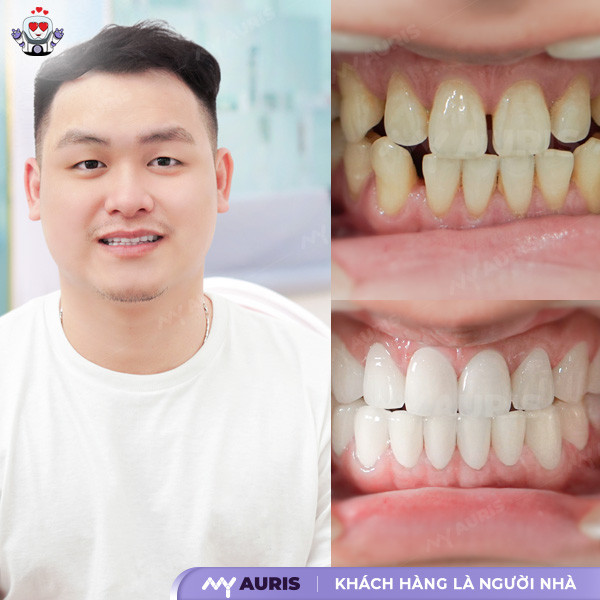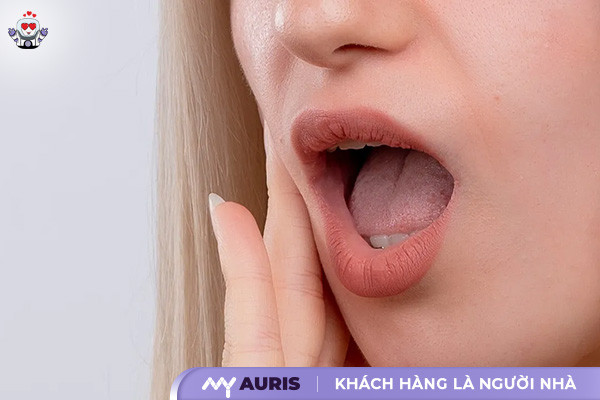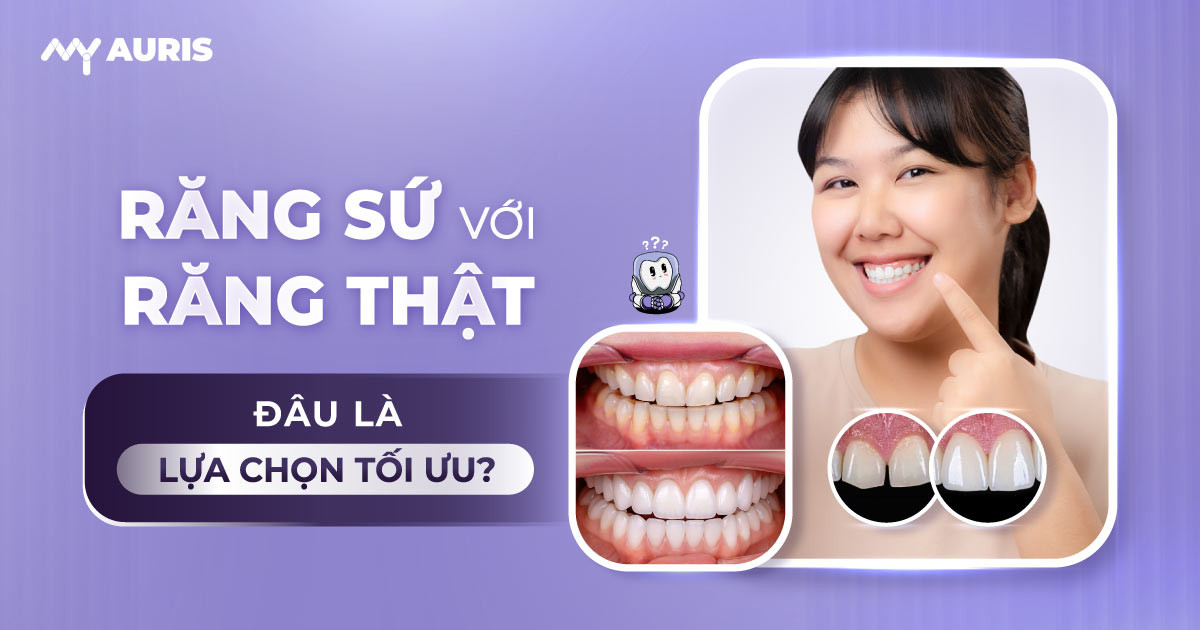Many people wonder if porcelain veneers are a good option when considering this method. Common concerns include the impact on natural teeth, whether they weaken the teeth, or if the lifespan of porcelain veneers is guaranteed. In reality, the effectiveness of porcelain veneers depends on many factors. The article below will analyze these in detail to help you understand better.
Should You Get Porcelain Veneers?
Are porcelain veneers the right solution for you? In modern dentistry, porcelain veneers are considered a significant advancement in dental restoration, offering high aesthetic value and transforming facial appearance. This method is particularly effective in quickly correcting dental imperfections. So, when should you get porcelain veneers?
Porcelain veneers are an optimal solution for functional issues such as: chipped, fractured, or missing tooth structure, root canal-treated teeth, severe tooth wear, loose periodontal teeth, the need for bite reconstruction, extensive decay, dental trauma, or missing teeth requiring replacement. If left untreated, these conditions, without interventions like porcelain veneers, can lead to prolonged pain and even tooth loss. Porcelain veneers help preserve natural teeth, prevent widespread damage, and maintain chewing function.
For example, Mr. Hieu (Ho Chi Minh City) suffered from severe tooth discoloration and gum recession, which significantly impacted both aesthetics and chewing function. Porcelain veneers helped him restore lost enamel, improve chewing function, and achieve a confident smile.

Porcelain veneers are also an ideal choice for those wishing to improve the aesthetics of their smile, such as: discolored teeth, gaps between teeth (when not opting for braces), minor misalignments, or abnormally shaped teeth.
The decision to get porcelain veneers always involves a trade-off between aesthetic benefits and natural tooth preservation. Some individuals prioritize keeping their natural teeth, accepting minor imperfections to avoid the risks associated with tooth preparation and enamel etching. Conversely, many value a beautiful smile, believing that a confident smile enhances communication, work, and relationships. They are willing to undergo necessary interventions, such as tooth preparation, to achieve their desired aesthetics.
For example, a patient with significant gaps between teeth opted for full-arch porcelain veneers to achieve straight, beautiful teeth and a radiant smile. In this particular case, porcelain veneers were clearly the right choice.
However, not everyone is suitable for porcelain veneers. If your teeth are overly sensitive, you should not get porcelain veneers. Furthermore, children should not get porcelain veneers too early. The ideal age is over 18.

What Are the Harms of Porcelain Veneers?
Porcelain veneers can provide a confident smile, but they carry potential risks if not performed correctly. Choosing a reputable dental clinic with experienced dentists and using quality porcelain materials is extremely important. So, is tooth preparation for veneers harmful? Let’s explore the potential harms and how to prevent them.
Risks of improperly performed porcelain veneers:
Damage to Natural Teeth: Tooth preparation for crowns requires meticulous precision from the dentist. Over-preparation can damage natural teeth, affect chewing sensation, and potentially cause sensitivity, pain, and heightened sensitivity to hot and cold foods. This is why natural tooth preservation is always prioritized.
Sensitivity, Pain, and Discomfort: Tooth preparation that exposes dentin or ill-fitting, loose crowns can cause prolonged sensitivity and pain, especially during chewing. Chewing forces concentrated on the porcelain veneer or adjacent gum area can cause discomfort.
Cracked or Chipped Crowns: Poor quality or untraceable porcelain materials can easily lead to cracking, chipping, or even detachment of the crown, with the risk of accidental swallowing, posing health hazards. The dentist’s veneering technique also plays a crucial role in ensuring the durability of the crown.
Exposed Tooth Necks, Food Impaction, Gum Inflammation, Bad Breath: Ill-fitting crowns create gaps, leading to exposed tooth necks, food impaction, plaque buildup, gum inflammation, and bad breath. Meticulous oral hygiene is essential, but if crowns are not precisely fitted, cleaning becomes more challenging.
Bite Misalignment, Temporomandibular Joint (TMJ) Disorders: Inaccurate bite registration, uneven tooth preparation, or failure to check the bite after crown placement can lead to bite misalignment, difficulty chewing, jaw pain, and even temporomandibular joint (TMJ) disorders.
Oral Diseases: Gaps between the prepared tooth and the crown provide an ideal environment for bacterial growth, leading to serious oral health issues such as gingivitis, pulpitis, periodontitis, and tooth decay.
Are Porcelain Veneers Really Better Than Natural Teeth?
Porcelain veneers, or more specifically, dental crowns, are a method of aesthetic and functional restoration using porcelain crowns. These crowns, made from all-ceramic material or a combination of ceramic and metal, cover the flawed natural tooth. This process involves gently reshaping the flawed tooth to form a dental core, then placing the porcelain crown over it. The crown is designed to match the color of natural teeth, helping to protect the core tooth from harmful bacteria and improve oral aesthetics.
However, the question arises: Are porcelain veneers as good as natural teeth? The straightforward answer is: NO. For a healthy, intact natural tooth, no type of porcelain veneer, even the most advanced, high-quality ceramic, can compare. Natural teeth are always the best option.
If your current dentition still provides good chewing function and acceptable aesthetics, you should not undergo tooth preparation for veneers in any form. Tooth preparation is an irreversible procedure; once enamel is lost, it cannot regenerate. This is why natural tooth preservation is always the top priority.
In cases where teeth have bite problems such as crooked teeth, severe gaps, overbites (protruding teeth), or misaligned teeth (underbites), orthodontic braces are a more optimal choice than veneers. Braces help realign teeth while preserving all natural tooth structure, ensuring long-term benefits for oral health.
Don’t be swayed by advertisements for ‘new technology,’ ‘premium porcelain,’ etc. No matter how advanced the technology, preserving natural teeth remains the top priority for dentists. Porcelain veneers should only be considered when natural teeth can no longer be preserved.
Always prioritize preserving your natural teeth. The decision to get porcelain veneers should be carefully considered with professional dental advice from a dentist. An experienced dentist will help you make the most suitable decision based on your specific oral condition, rather than imposing personal opinions, especially regarding aesthetic concerns. The final choice always remains yours.





